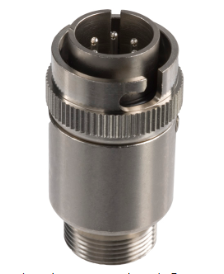- Online chat

IC14A-PL-SF-EJL(71)
The IC14A-PL-SF-EJL(71) is a high-reliability, compact relay module from Mitsubishi Electric, designed for industrial automation and control systems. Part of the IC series, this device features 16 Form A (SPDT) relays with a rated load of 2A at 250 VAC/120 VDC, enabling reliable signal and power switching in harsh industrial environments. Housed in a DIN-rail mountable package, it is optimized for use in programmable logic controllers (PLCs) and automated machinery. The module supports a wide operating temperature range (-10°C to +55°C) and offers robust protection against vibration and mechanical shock.
Key Features
This relay module combines compact dimensions (122 mm × 68 mm × 74 mm) with high-density design, minimizing space requirements in control cabinets. It features gold-plated contacts for low contact resistance and long-term durability, ensuring stable operation over 100,000 mechanical cycles. The IC14A-PL-SF-EJL(71) supports high-speed switching (≤10 ms) and offers a low coil power consumption (≤1.5 W per relay), reducing energy waste. It includes overcurrent protection and insulation ratings of 1,500 VAC, ensuring safety in high-voltage applications. The module is also compatible with Mitsubishi’s Q-series PLCs and supports easy wiring via screw terminals.
Applications
Primarily used in factory automation, the IC14A-PL-SF-EJL(71) is ideal for controlling motors, solenoids, and sensors in assembly lines, robotics, and process control systems. It is widely employed in equipment such as packaging machines, conveyor systems, and HVAC controllers where reliable on/off switching is critical. Its compact size and DIN-rail mounting make it suitable for space-constrained industrial setups, while its robust construction ensures longevity in dusty or electrically noisy environments.
Summary
The IC14A-PL-SF-EJL(71) combines compact design, high reliability, and compatibility with PLC systems, making it a cornerstone for industrial control applications requiring precise and durable relay functionality. Its low power consumption, wide temperature tolerance, and rugged construction cater to the demands of automation engineers designing reliable, energy-efficient control systems in diverse industrial settings. This module is essential for applications where safety, longevity, and space efficiency are paramount.




